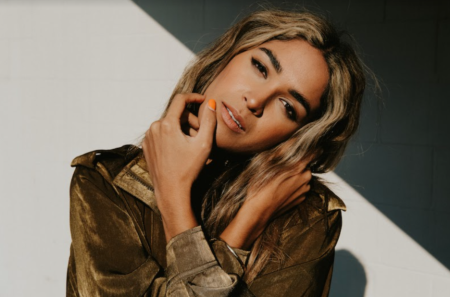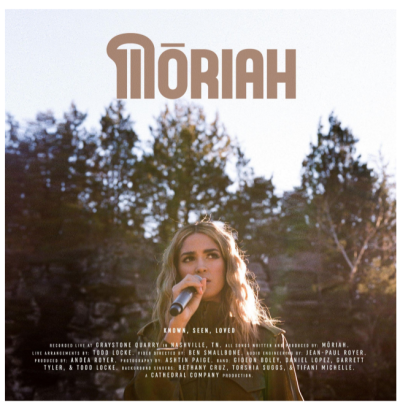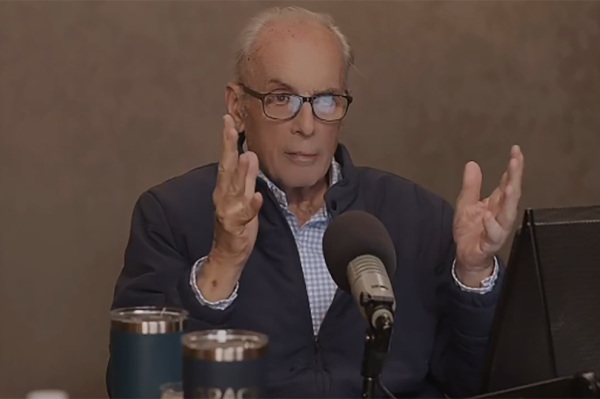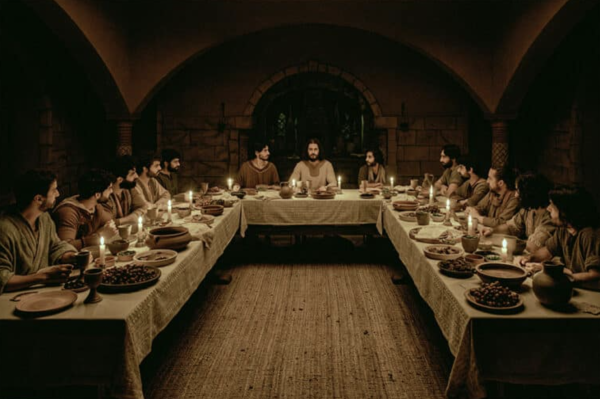Moriah Smallbone opens up about writing from her 'lowest low,' reclaiming identity in Christ

At the close of 2019, Christian recording artist Moriah Smallbone was in what she can only describe as a dark place following the betrayal of a close friend.
“I had experienced my deepest hurt, and probably my lowest low,” the 29-year-old Mexican-American musician told The Christian Post. “I went into quarantine before quarantine was a thing; I was so broken. I’ve heard people describe heartbreak before in a way where it’s like: ‘I don’t want to eat. I don’t want to get up out of bed. I just feel so heavy. I’m just so sad.’”
Amid her pain, Smallbone went on walks to pray, asking God for justice and healing. Exhausted, tired and sad, she came to a realization. She recalled telling God that she was hitting “a wall.”
“I think, in my striving for all of these things, I’m realizing that I’m hitting a wall with all of it,” she recalled telling the Lord. “It’s not giving me the peace I so desperately need. I think the only thing that can do that is if I sit for long enough to actually experience what it feels like to be known, seen and loved by [God].”
It was from this place that Smallbone wrote the song “Known, Seen, Loved.” The song includes the lyrics, “I thought I wanted answers/I thought I wanted healing/But what I need most/Is to be known, seen, loved.”
“Healing, justice, power, you know, all of these things are so important. And they play a very important role in the health of a culture, in the health of human being,” Smallbone added. “But whenever we strive for those things more than working in any way we can to sit and to be and to know that we’re known, seen and loved despite what we do, or what has been done to us, we’ll just end up empty-handed.”
The song is featured on Smallbone’s new EP and visual album titledLive From The Quarry. Releasing on Dec. 3, the album tackles issues of identity, contentment and worth. The project was written and entirely produced by Smallbone.
“I’ve been writing and recording for the past decade, and never have I ever written a project on my own. Never have I ever produced a project on my own, and never have I ever written a project without the intention of releasing it into the world,” the Nashville resident shared. “So those were like three big firsts that have really shaped the release process and the feelings that have gone along with that.”
Last week, Smallbone dropped her new single, “Worth,” which features her husband, Grammy and Dove award-winning artist Joel Smallbone from the contemporary Christian band for King & Country.
A highly personal song, “Worth” was inspired by the artist’s grandmother, an immigrant from Mexico who dropped out of school in the sixth grade to work in the fields and factories of California to provide for her family.
“Then, becoming an adult, she got married,” Smallbone shared. “And then her life was still hard. She had five kids, and she experienced abuse.”
Through her grandparents and parents, she said she’d inherited an “endurance and toughness” to go along with an awareness of her worth and value.
“When your circumstances, when the people around you, when the situation you find yourself in is tearing you down, is trying to tell you that you’re not worthy, that you’re not worth it, that you don’t deserve love, ... it takes so much mental fortitude and strength of spirit to go, ‘God you have created me, and my identity is in You,’” she said.
Smallbone added that identity in Christ can’t be touched by job changes, failure or seasons of low productivity in which she feels she has “lost the right to call myself creative.”

In addition to writing and producing music, Smallbone is an actress. She depicted the legendary singer Loyce Whiteman in an upcoming Ronald Reagan biopic starring Dennis Quaid.
Learning to stay spiritually and relationally healthy amid her many roles has taken growth and a concentrated effort to welcome failure and critique.
“What I realized over time is that there are times where I can value product over people, and that never ends well,” Smallbone shared. “Another thing I’ve learned is that endurance is more valuable than success. So I try to have a long-term vision in view of things and I try to, on a daily basis, check my ego at the door because it’s a really big one.”
“Work and jobs will come and go and seasons of productivity will be high and then will be low,” she continued. “But the relationships that we form along the way, those are the things that shape who we are as people, who shape our character. And that’s where we have a lasting impact on the world is when we get to do life with someone and encourage them or build them up. I try to do all of my work from that lens of valuing people over product.”
Smallbone understands the responsibility that comes with her platform and hopes to be a small part of bringing light to a struggling generation as suicide is the second leading cause of death for young people. That statistic, she said, is a sobering one.
“Why would we be alive in this time, and not 100 years ago, or 100 years from now? Why? I hope everybody asks that question, regardless of their job description. Why do I exist right now, for such a time as this? Why has God put a microphone in front of me?” she asked.
“When I start with the ‘why,’ I find that it often leads to something that’s bigger than myself. I realized that music is a really powerful tool, but it’s not the only tool in the box. … It’s not about any form of success; I don’t need anything, I’m so content, I have way more than I ever thought that I would have just as a person. I really am thankful to be sharing music from an overflow.”
Smallbone says she’s fueled by her desire to serve the underserved, reach the underreached and bring hope to those in need of hope. Through her latest album, she aims to do just that.
“Culturally, particularly this generation, we’re pretty overwhelmed, we’re pretty inundated, and it’s it’s hard to mentally process all that we’re exposed to in a single day, let alone 20 years,” she said.
“I think that as people hear the songs, I hope that they can serve as an underscore to their pain, a soundtrack to their questions, that the music that I created in a time where I was very alone, and I felt very just heavy and in a really scared place, that it would be a comfort to someone else to know that they’re not alone in that. There is joy, there is healing on the other side.”
Leah M. Klett is a reporter for The Christian Post. She can be reached at: leah.klett@christianpost.com






















